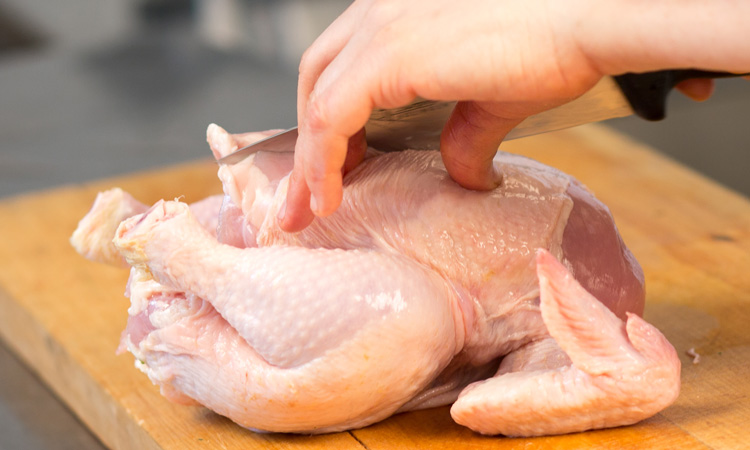FSA publishes latest levels of antimicrobial-resistant bacteria in chicken
- Like
- Digg
- Del
- Tumblr
- VKontakte
- Buffer
- Love This
- Odnoklassniki
- Meneame
- Blogger
- Amazon
- Yahoo Mail
- Gmail
- AOL
- Newsvine
- HackerNews
- Evernote
- MySpace
- Mail.ru
- Viadeo
- Line
- Comments
- Yummly
- SMS
- Viber
- Telegram
- Subscribe
- Skype
- Facebook Messenger
- Kakao
- LiveJournal
- Yammer
- Edgar
- Fintel
- Mix
- Instapaper
- Copy Link
Posted: 18 February 2020 | Sam Mehmet (New Food) | No comments yet
The two annual surveys tested fresh chicken on sale in the UK, with one looking at certain types of antimicrobial-resistant (AMR) E. coli, and the other at AMR campylobacter. The results are from Year Four of the surveys (2017 to 2018).


The Food Standards Agency (FSA) has published the results of two surveys monitoring antimicrobial-resistant (AMR) bacteria in chicken.
Overall, the AMR E.coli contamination in retail chicken has declined in comparison to previous years, which suggests that the tighter control on antimicrobial usage in industry might be having a positive impact although further work is required to explore this, according to the FSA. The proportion of AMR campylobacter isolates and multi-drug resistance found were similar to those in Year Three (August 2016 to July 2017).
“Antimicrobial resistance (AMR) is a national strategic priority for government and the FSA is playing its part by continuing to fill the evidence gap on the role that food plays,” said the FSA’s Science Lead in Microbiological Risk Assessment, Paul Cook.
“While there is evidence that AMR bacteria are present on chicken sold in the UK, it is encouraging to see the levels holding steady and even reducing. The risk of getting AMR-related infections through eating or preparing contaminated meat remains very low as long as you follow good hygiene and cooking practices.”
Representatives from the Food Standards Agency will be speaking at Food Integrity 2020. To find out more about the event, including a full agenda and list of speakers, click here.


Consumer advice
The FSA has offered a set of advice and guidelines that ensure the safe consumption of poultry and meat:
- Cover raw chicken and store at the bottom of the fridge so juices cannot drip onto other foods and contaminate them with food poisoning bacteria such as campylobacter
- Do not wash raw chicken – thorough cooking will kill any bacteria present, while washing meat can spread germs by splashing
- Thoroughly wash and clean all utensils, chopping boards and surfaces used to prepare raw chicken
- Wash hands thoroughly with soap and warm water, after handling raw chicken – this helps stop the spread of bacteria by avoiding cross-contamination
- Make sure chicken is cooked thoroughly and steaming hot all the way through before serving. Cut into the thickest part of the meat and check that it is steaming hot with no pink meat and that the juices run clear.
Related topics
Food Safety, Health & Nutrition, Lab techniques, Regulation & Legislation, Supply chain, The consumer









